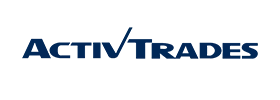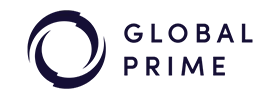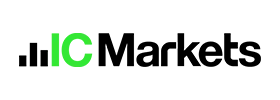France, a hub for financial markets and innovation, is home to thousands of individuals interested in the Forex market. This has led to a proliferation of Forex brokers in France, each vying for market share and seeking to establish themselves as the go-to destination for novices and professional traders alike. Many brokers that operate in France provide access to a vast selection of financial instruments, including currencies, commodities, indices, and stocks. French traders can typically pick from a range of trading platforms and account types, as well as take advantage of competitive pricing and impressive execution speeds. In France, forex trading falls under the supervision of the Autorité des Marchés Financiers (AMF), the country’s financial regulator.
Below you can find a list with the best Forex brokers regulated in France:
Top 6 Forex Brokers in France
-
Fusion Markets
- Australia regulated broker
- MT4, MT5, TradingView, Ctrader
- Leverage up to 500
Trading InstrumentsDeposit Methods- Commodities CFDs
- Crypto CFDs
- Forex CFDs
- Indices CFDs
- Metals CFDs
- Stock CFDs
-
FP Markets
- Australia and CySEC regulated broker
- MT4/MT5, TradingView, Ctrader, Iress
- EUR/USD spread from 0.0 pips
Trading InstrumentsDeposit Methods- Commodities CFDs
- Crypto CFDs
- Energy CFDs
- Forex CFDs
- Indices CFDs
- Metals CFDs
- Stock CFDs
-
ActivTrades
- Winner of 20+ Global Awards
- MT4/MT5, TradingView
- Leverage up to 1:400
Trading InstrumentsDeposit Methods- Bonds CFDs
- Commodities CFDs
- Crypto CFDs
- ETF CFDs
- Forex CFDs
- Indices CFDs
- Share CFDs
-
Axi
- Raw spreads start from 0.0 pips
- Offers order execution faster than standard ECN model
- Axi Select Funded Trader Program offers funding up to $1 million
Trading InstrumentsDeposit Methods- Commodities CFDs
- Crypto CFDs
- Forex CFDs
- Indices CFDs
- Metals CFDs
- Stock CFDs
-
Global Prime
- Australia regulated broker
- Advanced MT4
- $0 Minimum Account Size
Trading InstrumentsDeposit Methods- Commodities CFDs
- Forex CFDs
- Indices CFDs
- Metals CFDs
-
IC Markets
- Offers 2,200+ tradable markets, including 61 currency pairs
- Leverage of up to 1:1000 in select jurisdictions
- EUR/USD spreads from 0.8 pips for standard accounts
Trading InstrumentsDeposit Methods- Commodities CFDs
- Crypto CFDs
- Energy CFDs
- Forex CFDs
- Indices CFDs
- Metals CFDs
- Stock CFDs
Brokers Compared by Spread
| Brand | Commission per lot | |
|---|---|---|
| Fusion Markets | AVG 0.93 pips | $0 Classic Account, $4.50 round turn on Zero Account |
| FP Markets | AVG 1.2 pips | $0 Standard Account; $6 round turn on Pro Account |
| ActivTrades | AVG 0.5 pips | $0 |
| Axi | AVG 1.2 pips | $0 on Standard Account; $7 round trip on Pro Account |
| Global Prime | AVG 0.96 pips | $0 Standard Accounts; $7 round turn on Raw Accounts |
| IC Markets | AVG 0.82 pips | $0 Standard MT; $6 round turn on Raw cTrader; $7 round turn on Raw MT |
FX Brokers Deposit Method Comparison
| Brand | Minimum deposit | |
|---|---|---|
| Fusion Markets | $0 | |
| FP Markets | $50 (AU$100) | |
| ActivTrades | $0 | |
| Axi | $0 | |
| Global Prime | $0 | |
| IC Markets | $200 |
Brokers by Regulator
| Brand | Maximum leverage | |
|---|---|---|
| Fusion Markets | 1:500 (ASIC | Pro Account), 1:30 (ASIC | Retail Account), 1:500 (VFSC | Retail Account) | |
| FP Markets | 1:500 (CySEC | Pro Account), 1:30 (ASIC | Retail Account), 1:30 (CySEC | Retail Account), 1:500 (FSAS | Retail Account) | |
| ActivTrades | 1:400 (CMVM | Pro Account), 1:30 (CMVM | Retail Account), 1:1000 (FSC), 1:200 (SCB) | |
| Axi | 1:500 (Elite Account), 1:400 (Pro Account), 1:30 (ASIC | Retail Account), 1:30 (CySEC | Retail Account), 1:30 (DFSA | Retail Account), 1:30 (FCA | Retail Account), 1:500 (SVGFSA) | |
| Global Prime | 1:500 (ASIC | Pro Account), 1:30 (ASIC | Retail Account), 1:500 (VFSC) | |
| IC Markets | 1:500 (CySEC | Pro Account), 1:30 (CySEC | Retail Account), 1:1000 (FSAS | Retail Account) |
Forex Brokers Platform Availability
| Brand | FX pairs to trade | |
|---|---|---|
| Fusion Markets | cTrader, MetaTrader 4, MetaTrader 5, TradingView | |
| FP Markets | cTrader, TradingView | |
| ActivTrades | MetaTrader 4, MetaTrader 5, Proprietary Web, TradingView | |
| Axi | MetaTrader 4 | |
| Global Prime | MetaTrader 4 | |
| IC Markets | cTrader, MetaTrader 4, MetaTrader 5 |
Comprehensive Comparison the Best French Forex Brokers
Legal Forms of Forex Trading in France
French trading enthusiasts have access to an array of trading instruments. Among the most popular markets are the major and minor currency pairs, which allow traders to speculate on the fluctuations in exchange rates between different countries. Both spot trading and forex contracts for difference (CFDs) are legal. Furthermore, France’s brokers also offer a selection of precious metals in terms of instruments, including gold and silver, as well as energy commodities such as crude oil and natural gas.
In addition to forex, traders in France can access a range of indices, including the CAC 40, which tracks the performance of the largest companies listed on the Euronext Paris stock exchange. Many brokers in France also offer stock trading, providing access to a vast array of equities from around the world. These instruments provide forex traders with a range of opportunities to diversify their portfolios and capitalize on market trends.
Restrictions on Currency Trading in France
The main trading restriction that French retail clients are affected by is the ban on binary options, which came into effect in the summer of 2019. This followed the European Union’s own prohibition, which was implemented the year prior. The AMF’s decision was made in response to concerns over the lack of transparency and the high risks associated with these financial instruments. Binary options, which involve predicting the direction of a market or asset, have been criticized for their complex and often misleading marketing practices. The ban also came with the announcement that contracts for difference trading would be subject to restrictions, although they were not prohibited outright.
Who Regulates Forex Trading in France?
France has a long history of regulating its financial markets, and a recent notable development was the establishment of the Commission des Opérations de Bourse (COB) in 1967. The year 2003 saw the implementation of the Financial Security Act and the founding of Autorité des Marchés Financiers (AMF). In 2011, the two entities merged to create a single, unified regulatory authority responsible for overseeing all aspects of the French financial markets.
Over the years, the regulatory framework has evolved to keep pace with the changing needs of the financial markets. The AMF is now the primary regulator of Forex trading in France, ensuring that brokers operating in the country comply with strict regulatory requirements.
In addition to the AMF, the Autorité de Contrôle Prudentiel et de Résolution (ACPR) is another important entity when it comes to the regulation of the French financial markets. The ACPR is responsible for ensuring the stability and soundness of the country’s financial institutions, including banks and other credit institutions.
The implementation of Europe’s Markets in Financial Instruments Directive II (MiFID II) further strengthened the regulatory framework for Forex trading in France. MiFID II introduced a range of new requirements, including stricter rules on transparency, disclosure, and best execution, aimed at promoting a fair and competitive market environment in Europe.
Requirements for Forex Brokers in France
In France, Forex brokers are subject to a range of stringent requirements designed to protect the interests of retail traders. First and foremost, the country’s local regulator demands each broker impose a retail leverage limit to prevent traders from taking on excessive risk. This limit is set at 1:30 for major currency pairs, ensuring that traders do not over-leverage their accounts and incur significant losses.
One of the key requirements is the provision of negative balance protection, which ensures that retail traders cannot lose more than their initial deposit. This safeguard is a critical component of the regulatory framework, as it prevents traders from incurring significant losses due to market volatility.
Another important requirement is the provision of investor compensation, which ensures that traders are protected in the event of a broker’s insolvency. This compensation scheme provides a safety net for traders, allowing them to recover their losses should a broker run into financial difficulty.
Forex brokers in France are also required to provide clear and transparent risk disclaimers, which inform traders of the potential risks associated with trading in the Forex market. This includes the provision of information on leverage, margin, and other key trading concepts. Clear warnings must be made regarding contracts for difference as well.
In addition, Forex brokers in France are required to segregate client funds from their own assets, ensuring that traders’ deposits are protected from the broker’s own financial risks. This segregation requirement is a critical component of the regulatory framework, as it ensures that traders’ funds are not misused by a broker.
How to Identify Reliable Forex Brokers Accepting French Clients
When searching for a reliable Forex broker that welcomes French clients, it is essential to conduct thorough research to ensure that the broker is trustworthy and meets your trading needs. One of the first steps is to verify the broker’s regulatory status. Check if the broker is regulated by the Autorité des Marchés Financiers (AMF) or another European regulator, such as the Cyprus Security and Exchange Commission (CySEC). This will give you confidence that the broker operates within a robust regulatory framework.
In addition to regulatory compliance, look for brokers that offer price transparency, providing clear and competitive pricing for their services. A reliable broker should also offer excellent customer support, with multiple channels of communication, such as phone, email, and live chat.
Security is another critical aspect. Brokers that employ advanced security measures, such as encryption and two-factor authentication (2FA), are recommended. A reliable broker should also have a robust system in place to protect against cyber threats and data breaches.
Other essential factors include the broker’s trading platform, fees, and account options. A reliable broker should offer a user-friendly trading platform, competitive fees, and a range of account options to suit your trading needs. By carefully evaluating these factors, you can identify a reliable Forex broker that caters to your preferences and provides a secure and transparent trading environment.
Are There Taxes on Profits from Forex Trading in France?
According to the French tax authority, the Direction Générale des Finances Publiques (DGFiP), Forex traders are subject to taxation on their profits, just like any other form of investment income. Individuals who trade currencies in France are required to report their profits on their annual tax return, and they will be taxed on their net gains. The capital gains tax rate applied to Forex profits stands at 19%, and social taxes of 17.2% must be paid as well. Local traders also have to pay a financial transaction tax.
One of the key aspects of Forex taxation in France is the concept of “gains à court terme” (short-term gains), which are taxed at a higher rate than long-term gains. Short-term gains are defined as profits made within a year of the trade, while long-term gains are profits made after a year.
Forex traders in France may also be subject to other taxes, such as the “impôt sur le revenu” (income tax) and the “taxe sur la valeur ajoutée” (value-added tax). However, these taxes are typically only applicable to traders who earn significant profits from their Forex activities.
It is important to note that the tax-related laws are subject to change. Traders should thus consult with a local tax professional to ensure they are meeting their tax obligations and taking advantage of any available tax deductions.
FAQs
Is Forex trading legal in France?
Yes, Forex trading in France is legal and regulated by the Autorité des Marchés Financiers (AMF), which ensures that brokers operate within a framework of transparency and fairness.
What is the minimum deposit required to start Forex trading in France?
The minimum deposit required to start Forex trading in France varies depending on the broker, as the AMF has not set specific limits for brokers to adhere to. Most brokers require a minimum deposit of around €100-€500, but you will come across ones that have no such requirements.
What happens if my Forex broker in France goes bankrupt?
When faced with such an issue, you may be eligible for compensation from the broker’s regulatory body or from a government-backed compensation scheme.
I have an ongoing issue with my broker, who do I turn to?
If you have a complaint about a financial services business in France, you can submit it to the Autorité des Marchés Financiers (AMF) Ombudsman. The Ombudsman is an independent and impartial body that helps to resolve disputes between consumers and financial institutions. To submit a complaint, you can fill out a form on the AMF website, providing detailed information about your issue.
How can I check the regulatory status of a Forex broker in France?
Brokers typically provide their licensing information on their websites, and you will need to look for a license issued by the AMF or another European regulator. If you are unsure about the legitimacy of a given license, you can look up the broker in the respective regulator’s register.
Conclusion
In conclusion, Forex is an attractive option for French trading enthusiasts. France’s Forex market has also been shaped by its commitment to transparency and fairness, with brokers required to provide clear and concise information to traders regarding their fee structures, the risks tied to trading, and more. With a strong regulatory framework led by the Autorité des Marchés Financiers (AMF), and a wide range of brokers to choose from, French forex traders can enjoy a secure trading environment.
Why You Should Trust RationalFX
When it comes to making informed decisions about forex brokers, it's essential to rely on trustworthy sources. RationalFX, a company with over 20 years of experience since its founding in 2005, has established itself as a credible authority in the industry. With an impressive collection of over 2500 reviews on Trustpilot, boasting a score of 4.2, it's clear that Rational FX has built a reputation for providing reliable and unbiased information.
What sets Rational FX apart is its rigorous evaluation process, which considers over 30 different criteria when selecting forex brokers. This comprehensive approach ensures that every aspect of a broker's service is taken in consideration, including regulation, forex spreads, trading platforms, deposit methods, and reputation. With its wealth of experience, transparent review process, and outstanding customer feedback, Rational FX is a trusted source for anyone seeking reliable information on forex brokers. You can reach us via e-mail at feedback@rationalfx.com or contact us through our social media accounts here: Facebook, YouTube, or leave a feedback here.








